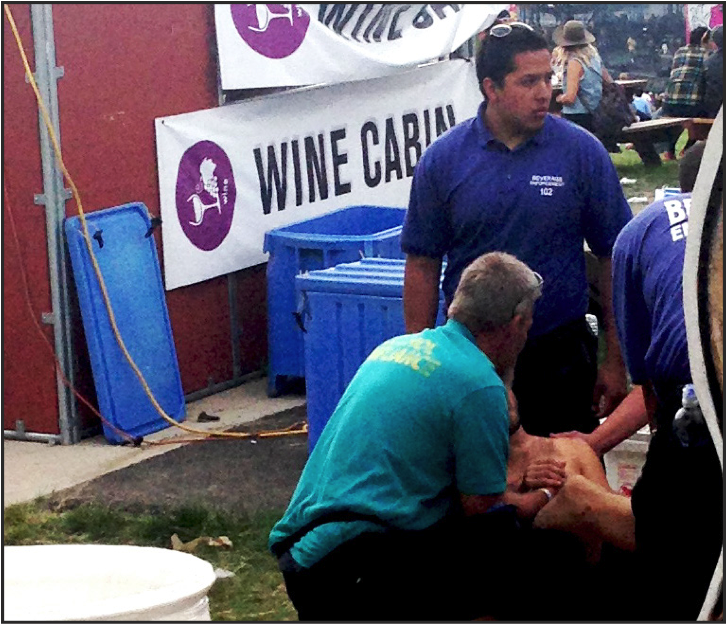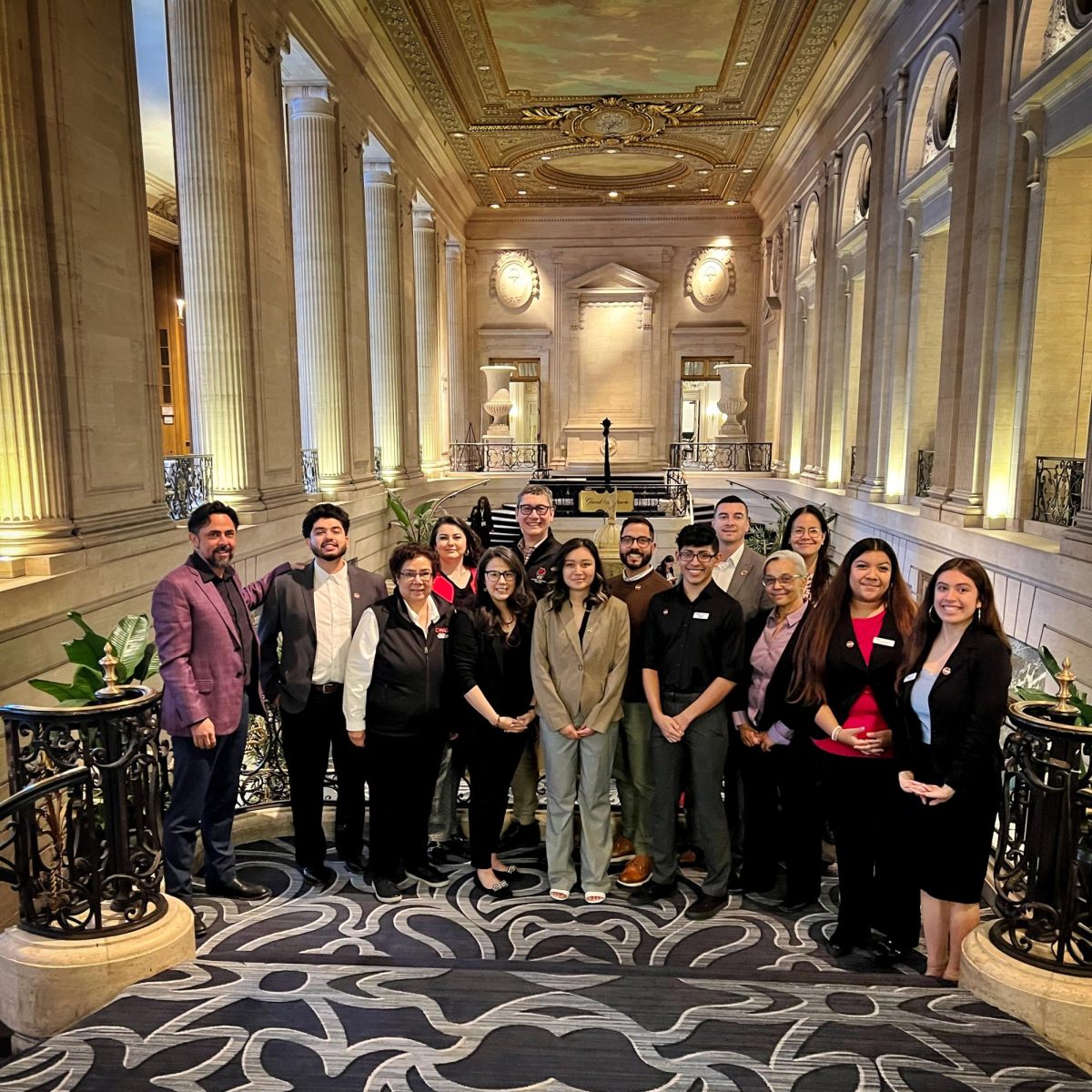BY Marissa Toussaint
Staff Reporter
Many students at Central are unaware of the risks involved in heavily attended music festivals.
Matt Christiansen, a Central law and justice and communication graduate, who also is Crowd Management Systems (CMS) head of marketing & client relations, talks about the dangers involved with substance abuse at the Gorge.
“Sasquatch is usually one of our biggest events because of the variety of substance abuse we see, with 27,000 attendees,” Christiansen said. “In most cases, though, it is ‘responsible use’ at this show, if there ever were such a thing.”
There are over 250 currently enrolled students employed by CMS, most of them Central athletes. They have to be mentally and physically strong, which according to Christiansen is why they hire so many athletes.
Brooks Abel, senior public relations major, works for CMS as Sr. Supervisor; he oversees all staff members and events within the venue. Last year at Paradiso, Abel saw a young woman come close to losing her life.
Not only is Sasquatch an issue for CMS and the attendees, but Paradiso has also become a huge event. With a massive amount of molly and ecstasy consumed during the weekend of Paradiso, many CMS employees have to be quick in times of dire need.
“We had a group of people come up and say their friend hadn’t moved for a while,” Abel said. “I went over to her, checked on her and she had no vital signs at all. I couldn’t feel her breath, no rise and fall of her chest, no heart beat, no really anything―she was just limp. I picked her up and ran her across the Gorge and took her to the medical tent.”
One serious danger in taking these substances, Christiansen said, is that users generally have no way of knowing exactly what they are taking.
“The EDM crowd has a stigma for taking hallucinogens, ecstasy or the crowd favorite here, molly,” Christiansen said. “Unfortunately, and I may catch some heat for saying this, the majority of the crowd is younger, inexperienced, and immature with how to attend this show. Last year alone we had over 100 drug overdoses, and as sad as it is to say, a death as well.”
Wayne Harris, Chelan County coroner said in an article by the Spokesman Review, the death of a 21-year-old at Paradiso last year was due to dehydration, heat exhaustion and methamphetamine intoxication.
The dangers of overdosing on unknown substances can be compounded by other factors at summer festivals, such as heat and lack of hydration, Christiansen said. This is what he believes made the disaster at Paradiso last June.
The Wellness Center hopes to start working on more of an educational program for Central on issues about attending festivals at the Gorge.
“Don’t get [drugs] from people at the venue that you don’t know, because that’s generally when people have complications,” Abel said.
Doug Fulp, health educator with the Wellness Center, would like to start connecting more with students and CMS staff to better control the drug and alcohol issues while attending concerts.
“We are always looking at different avenues to do preventative programs,” Fulp said. “We haven’t targeted concerts in the past, but that’s definitely an area I can look into.”
Fulp is a new health educator at the Wellness Center, hired this past October. He is happy to hear new ideas about preventative substance abuse and which areas should be targeted, such as summer concerts. Fulp talked about possibly coordinating with CMS, given how many students are currently employed at the Gorge.
“As a Central student, first and foremost, I believe that the university needs to remind students that there is the Wellness Center, and the services they provide,” Christiansen said. “Something as simple as a Facebook post or mass email can reach so many and be the difference in educating those that don’t know the preventative measures to protect themselves.”






